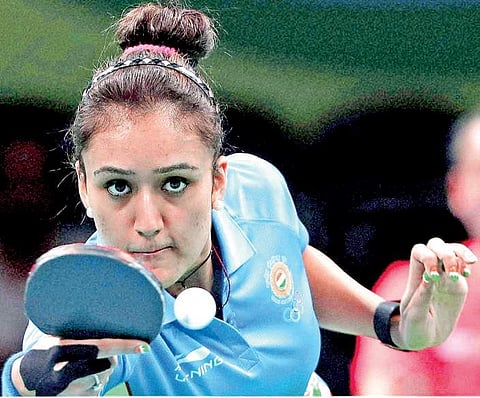

BENGALURU: Even as India’s champion athletes return from the 21st Commonwealth Games covered in glory, many of us continue to rub our eyes in disbelief at some of their astonishing feats. How did Manika Batra, a 22-year-old novice beat the world number four table tennis player not once but twice over an incredible week? How did Amit, a 15-year-old boy, out-gun a star-cast of shooting veterans in the rapid fire event? Or, how in the world, did a 16-year-old everyday girl Manu Bakar from a small-town in Haryana demolish a field of Olympic champions, seemingly without a nerve?
Research around the world into the psychology of pro-athletes proves that even more than brawn it is the brain that separates the champion from the rest in tough, nerve-wracking sporting battles. Indeed, elite athletes tower over the rest, not only because of their physique and fitness, which along with good genetics are of course important factors, but also because of their mental conditioning. Getting a head start inside of our heads, and honing the athletic brain is the key to unlocking elite-level performance.
With scientific training, super athletes are able to rev up the capacity of their brains to seemingly unreal levels, resulting in amazing performances even under excruciating pressure. Once they have pushed their capabilities (skills and physical attributes) to a supreme level, athletes hone their mental prowess, resulting in a fully activated cortex. The paranormal levels of alertness and calmness associated with champion athletes is because every part of their cortex is fully switched on. The adrenaline and non-adrenaline pumped out by the hypothalamus enables optimum circulation, sending blood gushing to all the right performance-related areas. This results in heightened levels of anticipation, judgment and action, the three key mental aspects to winning.
The metabolic activity too peaks, prompting the liver to generate extra energy. As the limbic system kicks into action, it cancels out the noise of unnecessary emotion from an athlete’s brain. In a boxing ring, for example, a rival is just an object that needs to be hit in certain point-winning areas. Through the duration of the bout, the mind of the champion boxer is able to shut out compassion and other such human emotions that might distract his attention from the singular goal of winning the contest. Athletes run, swim, box, wrestle and shoot, dispassionately and with a single-minded intent and focus, that is often referred as ‘monk-like serenity,’ or, being ‘in-the-zone, in common parlance. Once systematically trained, a brain can respond to unforeseen or unplanned situations too with great speed.
Indeed, building the type of brain power required to win at the highest levels of sport goes way beyond even sports psychology. Tactics like visualisation and self-talk, once the gold standard of mental training in sports, only scratch the surface of true mental capacity. Advancements in neuroscience and technology are making it possible for athletes to rapidly process information in highly dynamic and fast moving situations and align this process to their body mechanics. Through a competition the thought, action and the physical kinetics of a champion athlete remain in state of total synergy, helping them not only hit incredibly high performance levels but sustain them for long periods of time.
So, when Manika Batra was beating the fancied Feng Tian Wei there were clearly no thoughts in her mind except for one: it is a contest with an object (not the world number four) that needed to be defeated. The serene look on her face and her amazing sense of anticipation of how her rival responded to her own shots was, in the end, all about the brain. It was mind over matter at its classical best.
The author is a renowned neurosurgeon and founder of Brains Hospital in Bangalore.